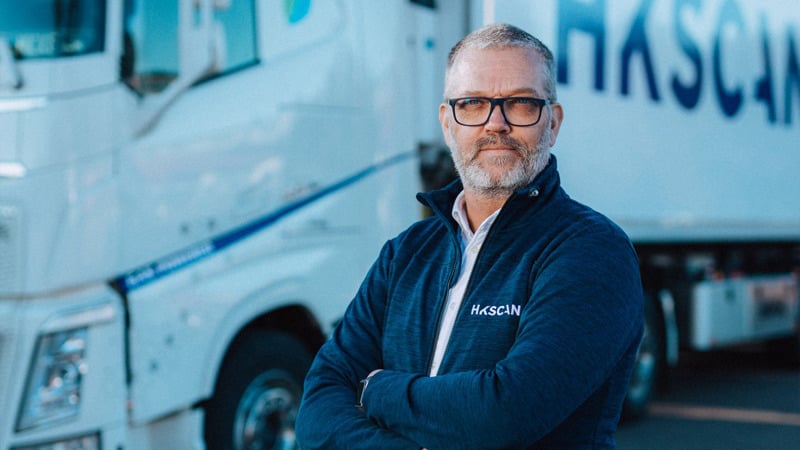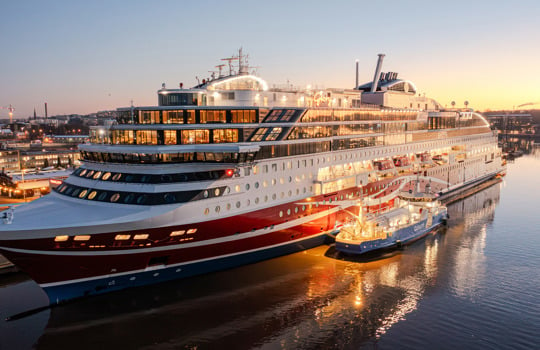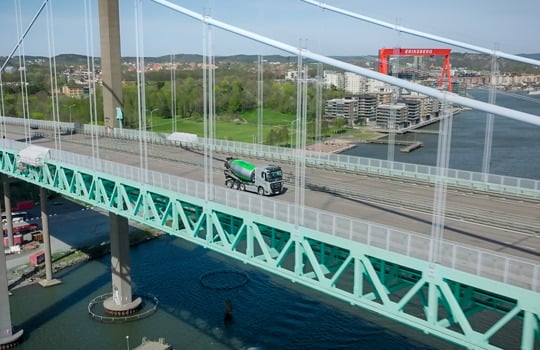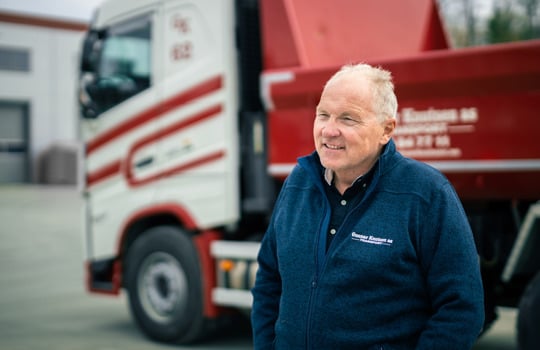Klimatklivet makes it easier to switch to biogas trucks
When food company HKScan Sweden began to require its suppliers to drive fossil free, Green L Equipment had already decided to switch to liquefied biogas. Investment support through the Klimatklivet environmental initiative provided the motivation and made it easier to switch to a gas-fueled truck.
Ambitious climate goals are nothing new to HKScan Sweden, which has long worked to reduce climate impacts. The company aims to have a completely carbon-neutral food chain from “farm to fork” by the end of 2040. This commits and places requirements on not least the company’s suppliers.
“Already some ten to fifteen years ago, way before anyone was talking about fossil-free fuels, we chose the least harmful from different types of diesel. We now make demands on our transport partners. Anyone who drives for us must switch to completely fossil free,” says Johan Rosvall, logistics manager at HKScan Sweden.

Based in Kristianstad, Green L Equipment is a supplier that has long been driving for HKScan Sweden. With its clear eco-profile, the company has long pursued sustainable alternatives. Unfortunately, the availability of fossil-free fuels like biogas has hindered the company’s development until now.
“We at Green L Equipment have always been at the forefront of an environmental approach and have long had ISO certification. Liquefied biogas is a really good alternative for long-distance, heavy-duty transport. But it wasn’t until Gasum built more filling stations that we beyond the E4 can drive on liquefied biogas,” says Mårten Andersson, CEO of Green L Equipment.
HKScan Sweden is one of many food companies that have joined DLF’s Transport Initiative 2025 that requires all transport in Sweden to be fossil free by 2025. DLF Sweden is a trade association for companies that produce or import goods for resale to the grocery retail and foodservice markets in Sweden. Johan Rosvall agrees that liquefied biogas is one of the fuels of the future.
Green L Equipment’s biogas truck means emissions can be reduced on these routes. “Our products are driven on many routes across southern Sweden. Transport earlier accounted for a large share of HKScan Sweden’s carbon dioxide emissions. With a gas truck, emissions on these routes can be reduced by almost 90% compared to fossil diesel. We looked at several different fossil-free fuel alternatives and liquefied biogas is definitely one we have confidence in,” says Johan Rosvall.
The requirements of the food industry came as no surprise Green L Equipment, who were already on the starting blocks to replace their trucks and had heard about the state investment support initiatives Klimatklivet and Klimatpremien. Green L Equipment chose Klimatklivet.
“Since a gas truck costs a bit more than a diesel truck, when we decided to switch to a gas-fueled truck, we applied for investment support from Klimatklivet. This means the Swedish state contributes 40-60% of the additional cost of the truck. More should seize the chance. Just contact Gasum if you need help with the application. Their experts will take care of everything free of charge,” says Mårten Andersson, adding that after three months of driving, things are also looking good with regard to operating costs.
Anyone interested can read more about Klimatklivet and Klimatpremien on Gasum’s Swedish website. And just like Mårten Andersson says, those interested can also get help with their Klimatklivet application, completely free of charge. Just leave your contact information and Gasum’s experts will be in touch.
“At HKScan Sweden, our work with sustainability continues. We want to impact the entire value chain. Besides working with transport firms, we help our own farmers to make changes to reduce their climate impact. And our own waste? That goes to make biogas of course,” says Johan Rosvall.
Also, Mårten Andersson at Green L Equipment sees a bright future and has already begun to think about the next step on the company’s journey.
“We currently have 18 diesel-fueled trucks. We will have replaced our entire fleet by 2025 and be entirely fossil free.”
Is your business seeking a way to a cleaner future?
Contact us and we'll tell you more about the possibilities in gas logistics.



